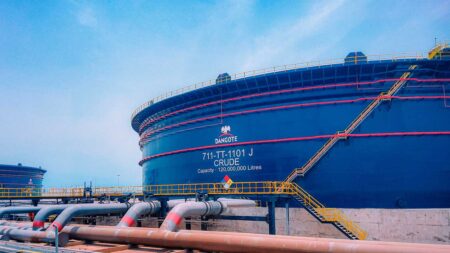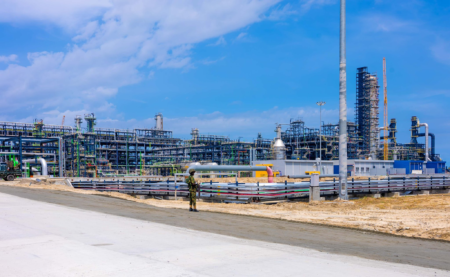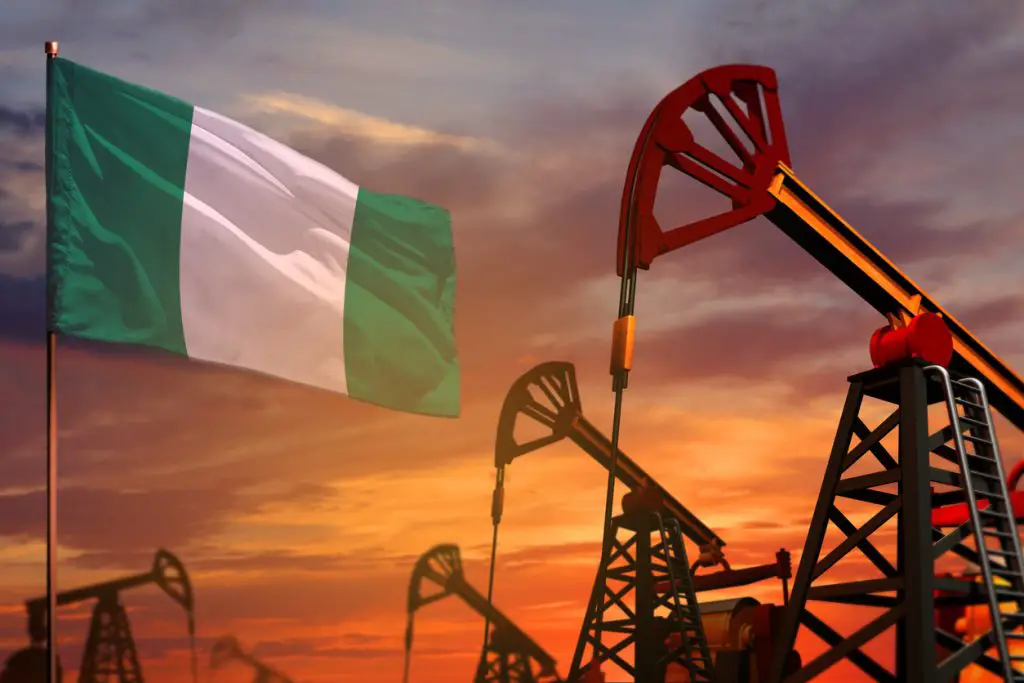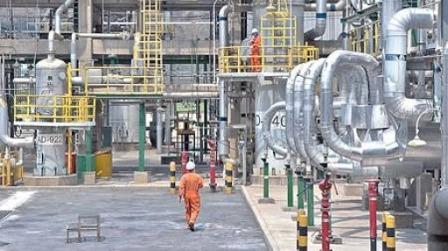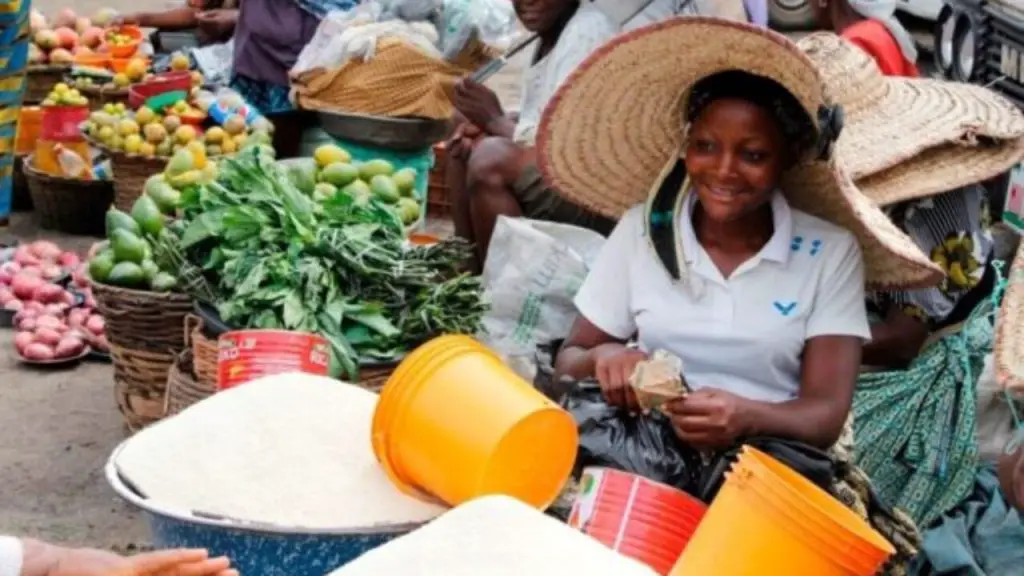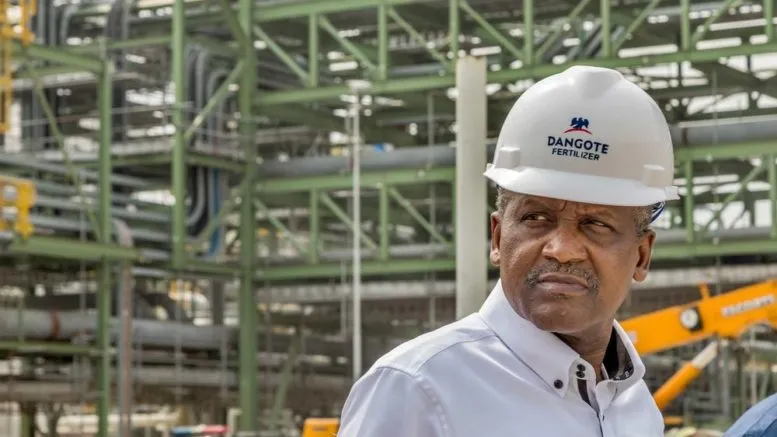- Africa’s new dawn: the rising role of digital and AI in agriculture
- Can Dangote Refinery Transform Africa Energy Ambition
- Gallup Survey: 80 per cent of Kenyan Workers Are Disengaged and Seek New Opportunities
- Madagascar Man Freed from 5KG Tumor After 15-Year Struggle
- How women in Africa are perceived and treated
- Sugar consumption in Kenya to Increase to 1.23 Million Tonnes
- Can Somalia and Turkey Oil deal Bring Change in Somaliland
- Remittances to Kenya dropped to $371.6 million in June, marking a six month low
Browsing: Aliko Dangote
- The construction took over 20 years and bears a processing capacity of 650,000 barrels per day 250,000 per day of gasoline and 100,000 of diesel.
- The Dangote oil refinery might halt the decades-long gasoline trade from Europe to Africa worth $17 billion each year.
Dangote Oil Refinery
Aliko Dangote, Nigeria’s and Africa’s wealthiest man ambition to foster energy reliance in his motherland and the region at large might be at risk. The giant oil refinery which is said to possess the potential to end decades-long gasoline trade from Europe to Africa worth $17 billion a year.
Concerns and tensions are high as a myriad of issues emerged before and since the $ 20 billion refinery came to life. According to various news reports, including the BBC and Reuters, the construction began in 2016 and started producing diesel and aviation fuel in January this year as petrol is expected to …
- This initial batch is designed to sustain the facility’s ambitious goal of processing 350,000 barrels per day during its initial operational phase.
- The 650,000 barrels per day Dangote Petroleum Refinery can process most African crude grades as well as Middle Eastern Arab Light and even US Light tight oil as well as crude from other countries.
- A major step towards boosting Nigeria’s domestic refining capacity and attaining energy security (self-sufficiency).
Dangote Refinery, a 650,000 barrels per day plant has started operations by striking strategic alliances and resource acquisitions as it seeks to redefine Nigeria’s oil industry standards.
One such landmark development is the recent procurement by the Dangote Petroleum Refinery and Petrochemicals plant of 1 million barrels of Agbami crude grade from Shell International Trading and Shipping Company Limited (STASCO).
This significant move marks a crucial step in the refinery’s journey, as it not only serves to facilitate …
The Nigerian government has taken various steps to address the persistent fuel shortages, including rehabilitating the country’s refineries, the establishment of new refineries, and promoting private sector investment in the downstream sector. However, progress has been slow, and the problem persists. However, the Dangote oil refinery’s boost to Nigeria’s oil refining capacity should help the government in its quest to address the persistent fuel shortages and end the energy sector crisis.…
There is still plenty to accomplish. Even after a year, the PIA is still in a transitional period, with committees deliberating its practical implications. One seasoned Nigerian expert questioned how much the NNPC would change due to its transition into a limited liability corporation. Still, post-PIA data suggests that Nigeria’s oil and gas industry may be moving in the right direction.…
Dangote uses lower pricing to grow its market share, but Kenyans have had to wait longer for this to happen.
However, Dangote was a surprise attendee at William Ruto’s inauguration as Kenya’s fifth president. This revived talks among Kenyans that he probably would now be able to jumpstart his investment plans in Kenya and have the cement plants going.
Ruto and Dangote met in March 2014 when the then Deputy President visited the Obajana plant of Dangote Cement in Kogi State, Nigeria. At the time, Kenya intended to fast-track licensing for Dangote Cement in the country to boost job creation opportunities for Kenyans.
Dangote’s attendance was thus a reminder and probably a harbinger of what is to come in the cement production sector in Kenya.…
President of Dangote Group, Aliko Dangote in his speech described the new plant as a game changer, as it can make Nigeria self-sufficient in fertilizer production, with spare capacity to export to other markets in Africa and the rest of the world.
While Dangote’s initial export targets were primarily Africa, current market realities mean there is increasing demand from outside the continent. Orders have come from far-flung places in the US, Brazil, Mexico, India, and the EU according to an article by African Business published on May 5, 2022.
According to the World Bank, the proximity of the new fertilizer plant offers a critical window of opportunity for Benin policymakers and the private sector to engage their Nigerian counterparts within the frameworks of the Economic Community of African States (ECOWAS), the African Continental Free Trade Agreement (AfCFTA) and other bilateral agreements to source fertilizer inputs for its farming population to …
Rising costs have remained a critical issue in the aftermath of the outbreak. Data from the World Bank/NBS Nigeria – COVID-19 National Longitudinal Phone Survey 2020 reveals that food prices rose rapidly following the pandemic. In March and April, basic food commodity prices increased by 17.2 per cent and 18.37 per cent, respectively. According to the National Bureau of Statistics (NBS), the rise remains the highest in two years.
Recent findings based on comprehensive and long-term monthly food price data have revealed considerable price rises for all chosen food categories during the pandemic. Imported rice and wheat costs, for example, have climbed by 41% and 21%, respectively.
Wheat prices surged by 21% nationally, with considerable increases in price dispersion across markets when the epidemic began, and prices continue to grow.
Wheat is the main component of bread and other products such as noodles, pasta, semolina, and other Nigerian pantry staples. …
The global fertilizer market has been shaken, and the Governor of the Central Bank of Nigeria, Godwin Emefiele, said that the plant is timely and will help Nigeria solve a perennial fertilizer problem.
The new fertilizer plant will produce 3 million metric tonnes annually, with Buhari expecting a boom as fertilizer is now readily available in more significant quantities and better quality. The head of state encouraged Nigerians to take up agriculture as a business, saying that he expects the rise of a new breed of agropreneurs who will add value to farming and make the nation self-sufficient in food production.”
Dangote said that fertilizer from the plant would be exported to many countries, including the United States, Brazil, Mexico, and India.…
- On average, the continent’s billionaires are worth $4.7 billion now compared to the $3.4 billion in 2014
- Aliko’s wealth has been increasing exponentially, from $10.1 billion in 2020, $12.1 billion in 2021, and 13.9 billion in 2022
- Nigerian Abdulsamad’s worth has risen from $3.1 billion in2020 to $7 billion in 2022, arguably the best performer on the list.
The African economy is not doing so well. But that does not mean so are all the people on the continent!
Aliko Dangote, a business magnate in Nigeria, has topped the 2022 Forbes list of the richest men in Africa for the eleventh consecutive time.
Despite the Coronavirus pandemic, the continent’s 18 billionaires’ combined worth is 15 per cent more than it was in 2021, standing at roughly $84.9 billion.
On average, the continent’s billionaires are worth $4.7 billion now compared to the $3.4 billion in 2014.
Soaring stock prices across sub-Saharan …
Despite Nigeria being the second biggest oil-rich country in Africa after Libya with an estimated 37 billion barrels of proven oil reserves, the West African country has been depending on imported refined fuel products due to lack of domestic refining capacity.
Dangote Oil Refinery
However, the situation is set to be changed by the coming of Dangote Oil Refinery, a company owned by the Nigeria-based Dangote Group.
The Dangote refinery, a 650,000 barrels per day (bpd) integrated refinery and petrochemical project under construction in the Lekki Free Zone near Lagos, Nigeria, is expected to be the Africa’s biggest oil refinery and the world’s biggest single-train facility, upon completion.
Light and medium grades of crude
The project which is being developed with an estimated investment of $12bn will process a variety of light and medium grades of crude to produce Euro-V quality clean fuels including gasoline and diesel …






